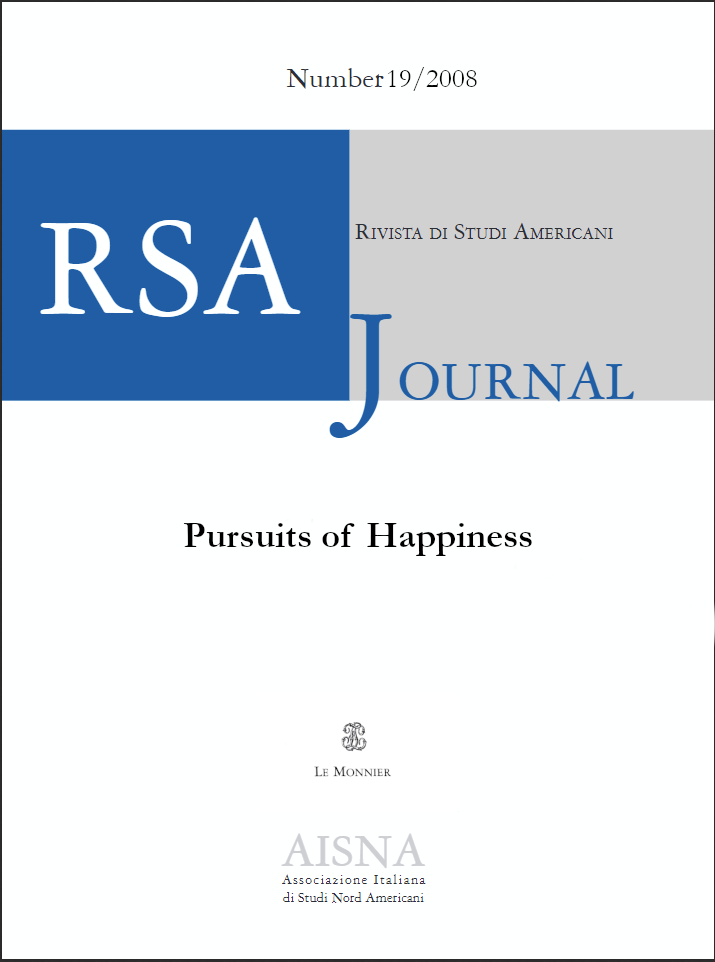Repression in the Early Republic
John Adams, the Alien and Sedition Acts, and the Politics of Excusion
DOI:
https://doi.org/10.13135/1592-4467/8779Parole chiave:
the Alien and Sedition Acts, repression, politics of exclusionAbstract
Using recent biographies of John Adams and the acquisition of Redex, Historical American Newspapers online, by the Library of the Università degli Studi di Milano, this essay explores the political history of the Alien and Sedition Acts of 1798 and the role of the American leadership in the implementation of these laws. Those policies derived from Adams’s experience and political judgment, but at same time they were strongly supported by Secretary of Treasury Alexander Hamilton. Both feared a state of anarchy in the early American republic, but these acts against publishers, congressmen, and simple farmers were seen by the common people as a conspiracy against the young democracy. Considering two examples of people who suffered persecution—Benjamin Franklin Bache, grandson of Benjamin Franklin, charged with seditious behavior for his activities as a printer, and Congressman Albert Gallatin, a foreign-born French Swiss who settled in western Pennsylvania, charged as an illegal alien – the essay shows clearly the politics of exclusion orchestrated by the Federalist party, as well as the use of force to suppress Fries’s Rebellion in Eastern Pennsylvania, which splintered the Federalist party and fractured the presidential cabinet. In the end the Alien and Sedition Acts misjudged the “genius” of the American people, ushering the Federalists out of power.
##submission.downloads##
Pubblicato
Fascicolo
Sezione
Licenza
Avviso sul Copyright
RSAJournal applica una licenza CC BY-NC-ND a tutti i suoi contributi. Questa licenza consente agli utenti di copiare e distribuire il materiale in qualsiasi supporto o formato solo in forma non adattata, per scopi non commerciali e a condizione che venga esplicitato/a l'autore/autrice dell'opera. CC BY-NC-ND include i seguenti elementi:
- BY: L'autore deve essere riconosciuto come tale.
- NC: Sono consentiti solo utilizzi non commerciali dell'opera.
- ND: Non sono consentite opere derivate o adattamenti dell'opera.
Gli autori che pubblicano con questa rivista accettano i seguenti termini:
- Gli autori conservano il copyright e tutti i diritti di pubblicazione per i loro contributi alla rivista.
- Gli autori concedono alla rivista il diritto di prima pubblicazione in base alla licenza internazionale Creative Commons Attribution-NonCommercial-NoDerivatives 4.0, che consente ad altri di condividere l'opera non modificata per scopi non commerciali a condizione che venga esplicitato/a l'autore/autrice dell'opera e la sede di pubblicazione iniziale (questa rivista).
- Gli autori sono in grado di stipulare accordi contrattuali separati e aggiuntivi per la distribuzione non esclusiva della versione pubblicata dalla rivista (ad esempio, per inserirla in una repository istituzionale o pubblicarla in un libro), con l'indicazione che il contributo è stato precedentemente pubblicato in RSAJournal.




